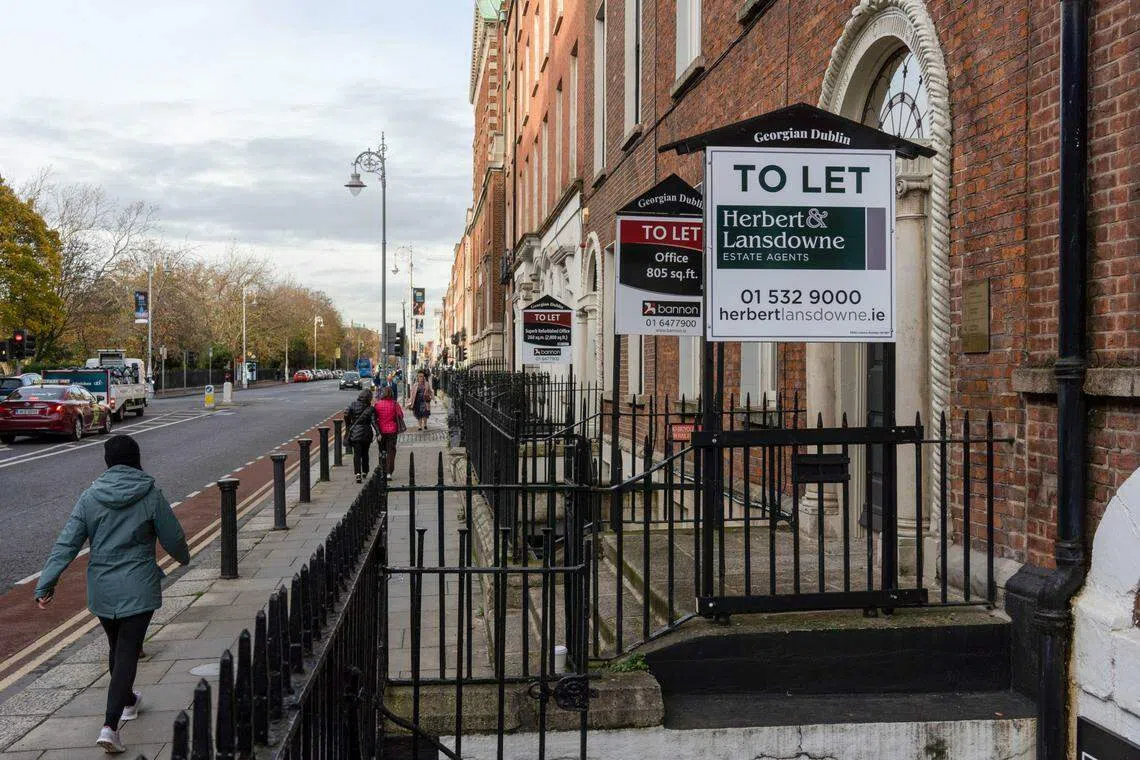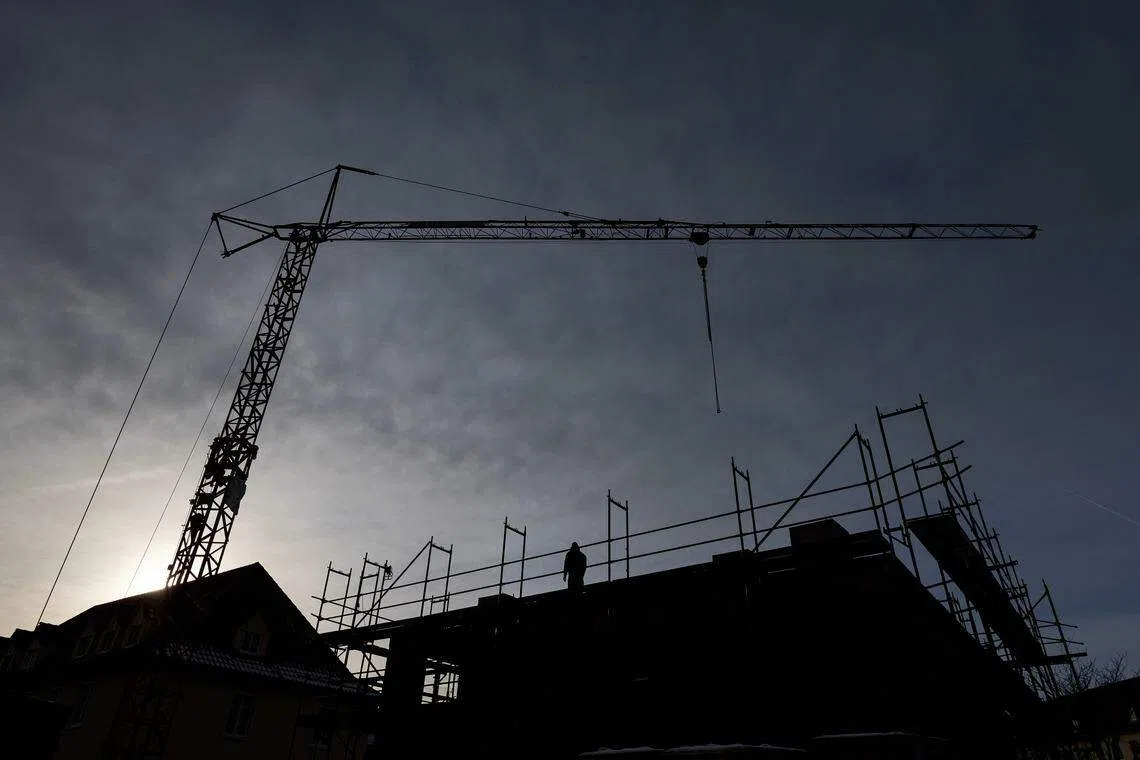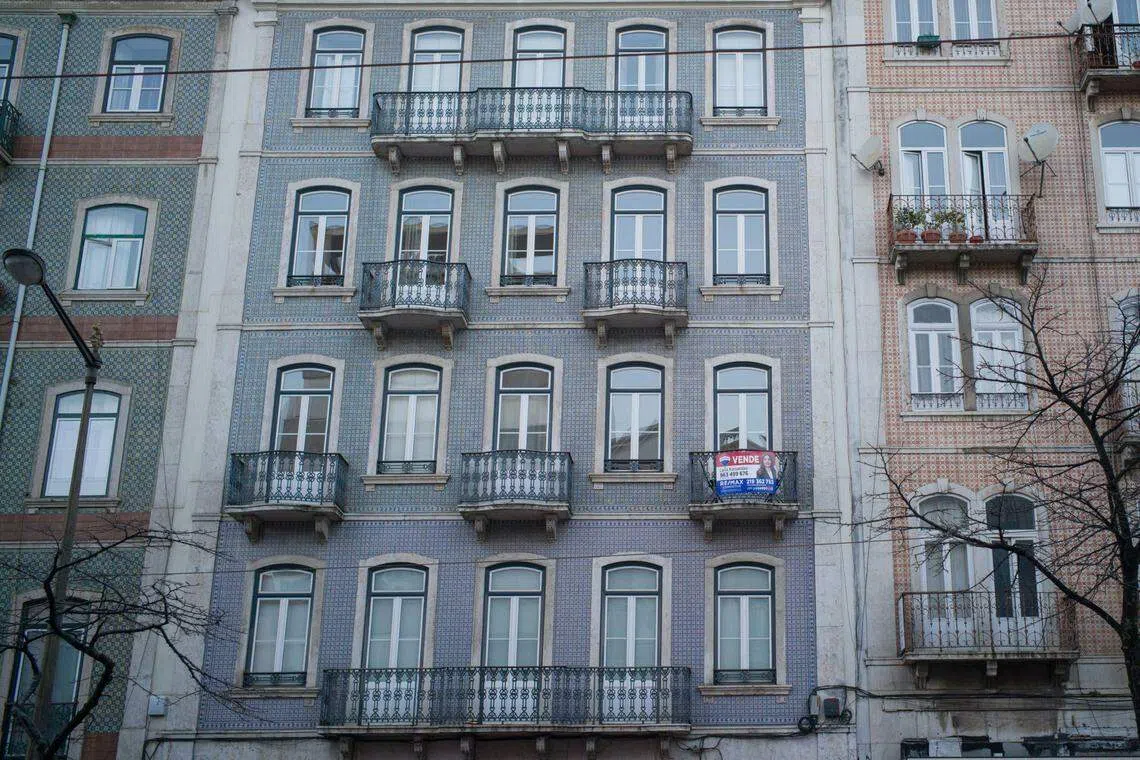Europe’s rent caps and red tape are threatening housing investment
AS HOUSING shortages cause rents to surge in major European cities, investors are queueing up to pour cash into new homes only to be thwarted by a bewildering array of hurdles.
With office and retail real estate suffering from remote working and online shopping trends, property investors have earmarked an additional 82 billion euros (S$119 billion) for residential projects in Europe to 2025, according to a Savills survey. But the quagmire of rules, regulations and red tape is standing in their way.
“There is all this capital that is looking to get into Europe,” said Mark Allnutt, executive director at Greystar Real Estate Partners, a private equity firm specialising in rental properties. “There is scarcity of supply and not enough existing stock, but there are barriers.”
Housing has become a thorny political issue for Europe, with struggles to find affordable living space contributing to social tensions and voter frustration. But there’s no quick fix.
From rent controls to planning bottlenecks, the hurdles vary across Europe and will require sustained government action to unlock investment to eventually ease pressure on strapped households. Here is a rundown of key issues in various markets.

United Kingdom
The mere mention of Britain’s planning system is usually enough to draw a look of disapproval from real estate investors. Development decisions are in the hands of depleted local councils, and public input can hinder ambitious projects. “There are some councils that get it, and there are some that don’t,” Allnutt said. “Those that don’t get it outnumber those that do.”
Navigate Asia in
a new global order
Get the insights delivered to your inbox.
Local authorities typically have eight weeks to make a decision, or up to 13 weeks for major projects. But only two in 10 applications for big housing developments were resolved in that time between July and September last year, according to government statistics.
The prospect of new rules is also an issue. The Labour Party, which is leading in the polls, has pledged a series of reforms to tackle Britain’s housing shortage, while in London, Mayor Sadiq Khan has repeatedly called for limits on rent increases.
While caps might be welcome for tenants, they can perpetuate housing shortages in the long term by choking off incentives for new construction. That’s the case in Scotland, where landlords can only hike rents by up to 3 per cent a year, according to the Scottish Property Federation. “The sector has been stymied by what investors consider to be high levels of political risk,” said John Boyle, the main author of the research.

Ireland
Still suffering from a housing bubble that burst during the financial crisis, rent increases in Ireland are capped at 2 per cent a year in perpetuity. That means the recent surge in inflation is not accounted for, weighing on investment in new supply.
The upshot is a worsening housing crunch and intensifying tensions. Agitators involved in violent riots in Dublin in November harnessed grievances as a lack of affordable homes collides with an influx of refugees and asylum seekers.
The Irish government has pledged to build an average of 33,000 new homes each year from 2021 to 2030. But for developers, persistently high inflation means the numbers do not add up. “Rent control doesn’t have to be a problem,” but the rules need to align better with the costs and the risks, said Bob Faith, chief executive officer at Greystar.

Germany
Fewer than half of Germans own their homes – one of the lowest rates in Europe – and while that means there are lots of investment opportunities in the rental sector, buying existing stock entails renovation risk. There is an extensive supply of rental housing in Germany, but a significant portion is “very old and not fit for purpose”, said Greystar’s Faith.
Chancellor Olaf Scholz’s ruling coalition, which has failed to achieve a target of 400,000 new homes a year, shelved stricter efficiency rules for new buildings in September in a bid to bolster construction. But the move does little to counter high interest rates and surging construction costs, and investors remain nervous about when the rules will return.
“Housing construction urgently and quickly needs a boost, not further uncertainty,” said Felix Pakleppa, managing director of Germany’s ZDB construction lobby.
Strict rules on tenant protection make it even more difficult to attract investors. Government plans to further tighten regulations, such as lowering the cap on rent increases, “would lead to less new building rather than more”, said Rolf Buch, chief executive officer of Germany’s largest landlord Vonovia. “Legislators need to think about this carefully.”

Nordics
Sweden’s ongoing real estate crisis, which raised echoes of a 1990s crash that sparked a full-blown financial meltdown, has seen slumping property prices and surging financing costs weigh on the Nordic country’s economy. But in Stockholm, there is not nearly enough supply, and national rent controls hold back investment in development.
For those who do not have the money to buy or years to wait for an official lease have little alternative to a shadowy sublet market. Such issues spook many looking to invest in new supply across Europe, with the risk that all landlords are tarred with the same brush.
“Investors have nervousness about reputational issues, but the big one is regulation,” said Andrew Allen, global head of research, product strategy and development at Savills Investment Management.
In Denmark – where inflation is still high – rents can only rise 4 per cent annually until this year, with a cap applying to both existing and future housing contracts. The deal was put in place to bring relief to about 160,000 tenants who would otherwise face substantial increases, according to the government.

Poland
Ahead of last year’s election campaign, the Polish government implemented mortgage stimulus for first-time buyers, contributing to a surge of almost 20 per cent in home prices in the biggest cities in 2023. But now the money has run out and the new administration under Prime Minister Donald Tusk plans to restart support not earlier than in the second half of the year, adding income limits.
That means Poles are again exposed to the market’s structural problems, such as high prices, expensive loans and tight supply. The trends are expected to gradually turn some away from home ownership, confirming one of the key investment thesis for foreign funds investing in rental projects since 2016.
Property developer Echo Investment, which cooperates with Pimco, said it sees “increased interest from foreign operators to enter the market”. While many Poles are joining the trend and becoming landlords themselves, the volume of new transactions is climbing.
Iberia
Residential construction in Spain has been depressed since the last bubble burst more than a decade ago. The biggest bottleneck is sluggish administration. Developers complain it can take over a year to get approvals, adding to overall costs.
“In Spain, you have to be mindful of the time it can take to obtain a building permit,” said John German, who oversees Invesco’s residential business in Europe. “Even if the land is zoned, it can still take a year or more to obtain a building permit to start on site.”
There are efforts to unlock investment by spreading the risk. Spanish home developer Neinor Homes is setting up partnerships with investors such as AXA IM Alts. Such initiatives are much needed, with the stock of new dwellings shrinking for 13 consecutive years and now at the lowest since 2007.

In Portugal, the government is seeking to cool off a residential market by ending a golden visa programme and approving a plan to cut tax incentives for new residents. The moves stoked demand from foreign investors and put homeownership out of reach for most locals, but people still need a place to live and that opens the door to investors that can navigate the pitfalls.
“Investors increasingly defer to beds because they don’t like the other stuff,” Savills’ Allen said. “People will always need space for a bed and a kitchen.”
Decoding Asia newsletter: your guide to navigating Asia in a new global order. Sign up here to get Decoding Asia newsletter. Delivered to your inbox. Free.
Share with us your feedback on BT's products and services



